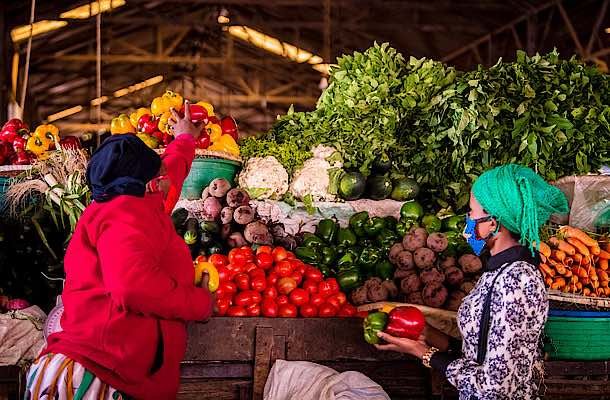
The Ministry of Finance and Economic Planning, in collaboration with, GIZ and Economic Policy Research Network (EPRN), has organized a Public-Private Policy Dialogue aimed at shedding light on the patterns and drivers of inflation as well as discuss ongoing containment measures.
The one-day event brings together monetary, fiscal, trade, and agriculture policy analysts, as well as members of the private sector.
The year 2022 brought about different global economic challenges, among those is the Russian-Ukraine war that exacerbated the increase of commodity prices and supply chain disruptions, which led to high inflation. In Rwanda, lower domestic food supply linked to the unfavorable weather conditions and higher prices of agriculture inputs such as fertilizers and seeds led to an increase in food prices and distribution across the country.
With higher prices of key commodities such as fuel and food, in addition to disrupted input supply chains, the industry, especially manufacturing, and service sectors saw their costs of production increasing, triggering an increase in the prices of domestically processed products and services. A similar phenomenon was observed in the region and overseas, including among Rwanda’s trading partners, leading to higher prices of imports to Rwanda. These shocks explain the 13.9 percent headline inflation recorded in Rwanda in 2022.
Dr. Patrick Hitayezu, the Chief Economist at The Ministry of Finance and Economic Planning said: “The Government of Rwanda is acutely aware that high inflation is imposing significant hardship, straining budgets and shrinking what paychecks will buy. We are therefore gathered here to discuss efforts and progress of policymakers towards restoring price stability to Rwanda’s economy for the benefit of the Rwandan people”.
In reaction to steep rise in prices, the Government employed a multipronged approach to curb inflation. To safeguard the gains in economic recovery, the National Bank of Rwanda has been proactively implementing monetary policy measures to stabilize prices. These include raising the Central Bank Rate (CBR) by 250 basis points since 2022 to mute demand pressures. Speaking at the Forum, Dr. Thierry Kalisa, the Chief Economist at the Central Bank noted that Recent global and domestic economic developments indicate that inflation is likely to remain high in coming months before easing to our benchmark below 8% by the end of 2023.
To manage the food supply shocks that triggered food price hikes all over the country, the Ministry of Agriculture and Animal Husbandry has been implementing targeted measures such as scaling up irrigation schemes, increasing land under consolidation, subsidization of agriculture inputs such as fertilizer and seeds as well as increasing seasonal fertilizer and seed use.
To contain imported inflation, The Ministry of Trade and Industry continued to spearhead efforts to contain speculative tendencies and conduct inspections, while diversifying import sources for major foodstuffs such as sugar and cooking oil and increasing domestic production capacity of essential goods such as bar soaps and cooking oil).
These efforts are yielding positive results, as witnessed by a significant reduction in monthly price increase over the last couple of months. In addition to the ongoing measures, the government will continue to address the cost of living by increasing spending on social protection activities, reducing the fuel levies to contain fuel prices from flaring above the affordable level, providing transport subsidies for commuters in public transport, and increasing the fertilizer subsidies. (End)
